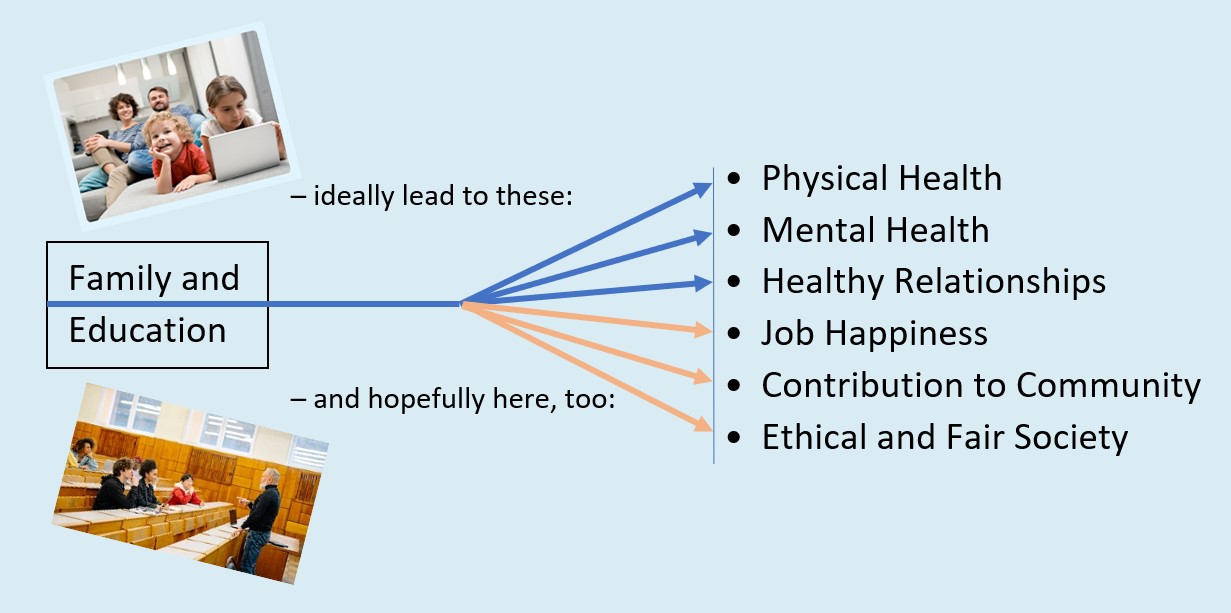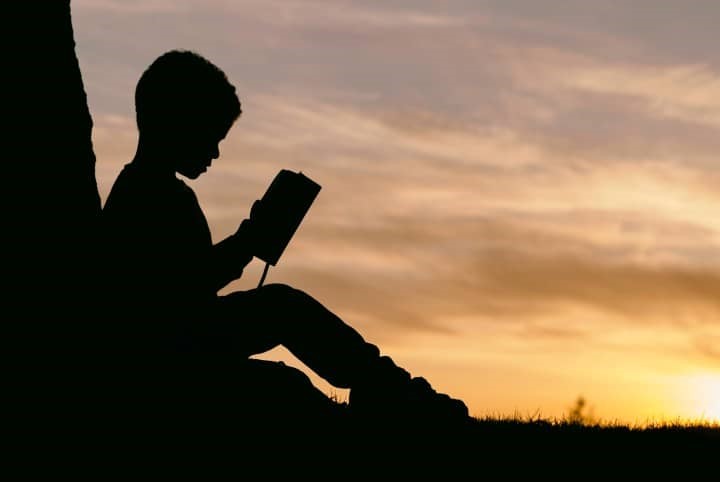As members of families, communities and societies, we guide our children to create and achieve goals for their lives. As parents and teachers, we can do this by demonstration, showing the way we deal with situations, and by education, teaching new skills. As individuals, communities and societies, we might have important goals like these:

We need to improve society’s effectiveness at helping people to achieve goals such as these. Many measures related to these goals appear to be in precipitous decline: it is likely that the COVID 19 pandemic is not helping.
So, what is the purpose of education?
People, in society generally look to education as a way of empowering people to generate positive change and to secure improvement – relevant to itself and its people. This could be through the improvement of the potential of individuals: if society were to become happier, healthier and stronger, then such individual improvements will have a dividend for society. However, the system updates to current educational software have not yet managed to bring about improvement – at least in what is measured and reported in the news. The problem is that: –
If we always think what we always thought,
We will always do what we always did, and
Always get what we always got. (Var. & Anon. )
Something significant needs to change if anything is going to improve. If society is unable to identify what is wrong with what we do now, we can improve our understanding by thinking differently about what actually happens to our young people as they grow up. See this article in the Financial Times with another view of these issues, by Lucy Kellaway (a journalist who became a teacher).
If prevention is better than cure, then some impediments to progress must lie with family and education – during the earlier part of our lives. Our children’s experience of education shows mixed results. Improvement of people’s lives at the earliest point possible is quicker, easier, cheaper, longer lasting and overall more effective. We now have more evidence from medical research on brain growth and development at different stages of life. We know more about learning than we have ever done from many sectors of educational, anthropological and cognitive research. We need to change the way we think about education.
The purpose of this website is to explore ways that
- Specific and relevant purpose can be understood and identified and
- Improvements designed and delivered,
So that what society considers important and measures, can be improved.

